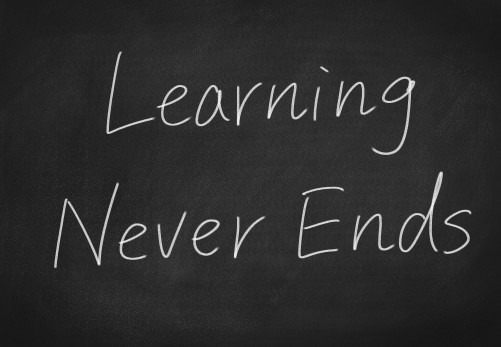What comes to mind when you think of your career and continuing education? For most, it’s school. Typically, it includes degree credit courses, non-degree career training workforce training, and personal enrichment courses.
Usually, continuing education is for people outside of the traditional university age, who may have already obtained a degree. These courses are available through a school of continuing education at college or university. Continuing education classes are often held after work hours, or through an online program.

So Who Takes Continuing Education Courses?
That really depends on the person and their career of choice. Medical professionals often take courses to stay caught up on the latest practices. Educators take continuing education courses to keeping their certification current. These are just a few of the careers that require a professional development to continue to get educated.
Some people may be in a job where there are little chances for promotion. If that is the case, you may decide to make a career transition to pursue your dream job. To do that, you must gain more education. You can do this at any point in your life. The education you gain will lead to better opportunities in your career. For some management positions, one must complete specialized training to qualify. If you attain a master’s degree, your wages often increase and so does the potential for moving up, either at the company you are currently at, or with a new employer. In some fields, earning a master’s degree may not help your career. Research carefully and ask those with experience in your field to see if it really is worth it. If not, look for other ways to improve your career potential.
Professional Certificate
Continuing education can include earning a professional certificate. Depending on your field, a professional certificate may be the more common route for continuing education. Either way, the additional education and training will improve your marketability. In some careers, having a master’s degree is the bare minimum requirement for employment. If that’s the case, you want to have additional training to stand out from the crowd. Seeking and gaining specialized coursework in your field will help you. You need to make it clear to your employer how your education and skills are an advantage to the company.
When getting your continued education, you should do everything possible to make the coursework applicable to the job you want to apply for. Applying for a job with a master’s education that isn’t relevant does not benefit you or your potential employer.

Continuing education, whether a professional certificate or additional training, will help you with your marketability, career advancements, and earnings. It can be attained after work, in a local college, or online, in the convenience of your own home. Additional education offers you opportunities for advancement, which is a goal of most employees.








Yes I agree totally.. Continue your education . Always should try and top your best I believe. Just start today on making improvements within your self.